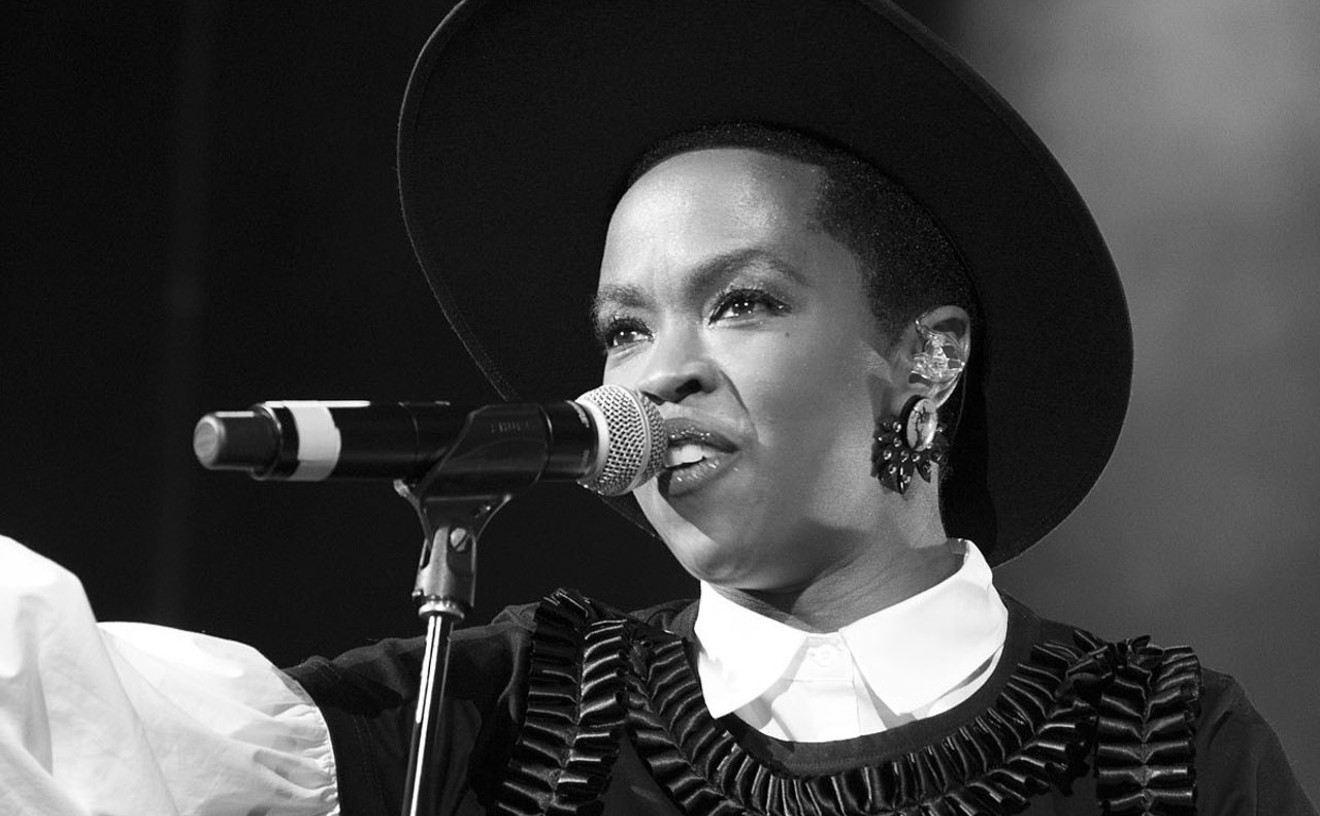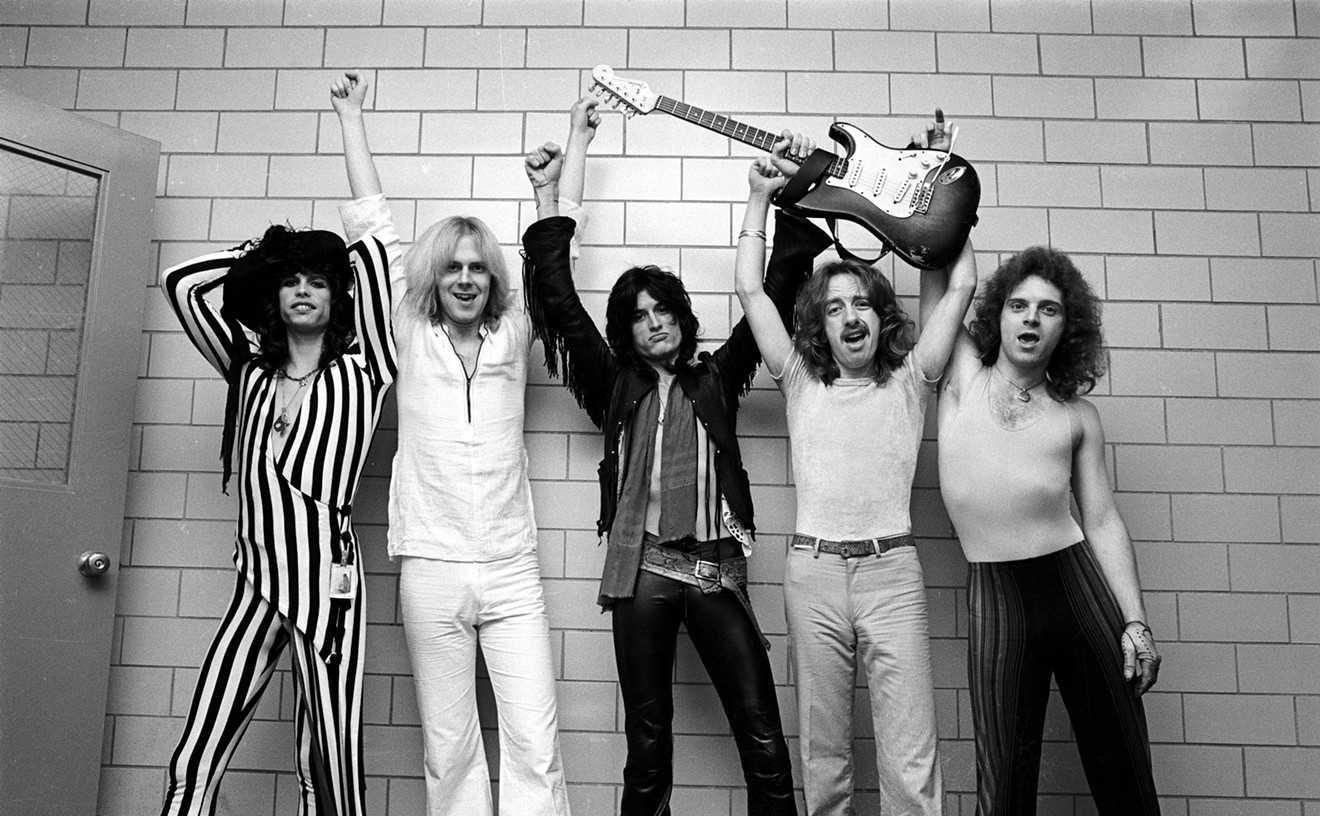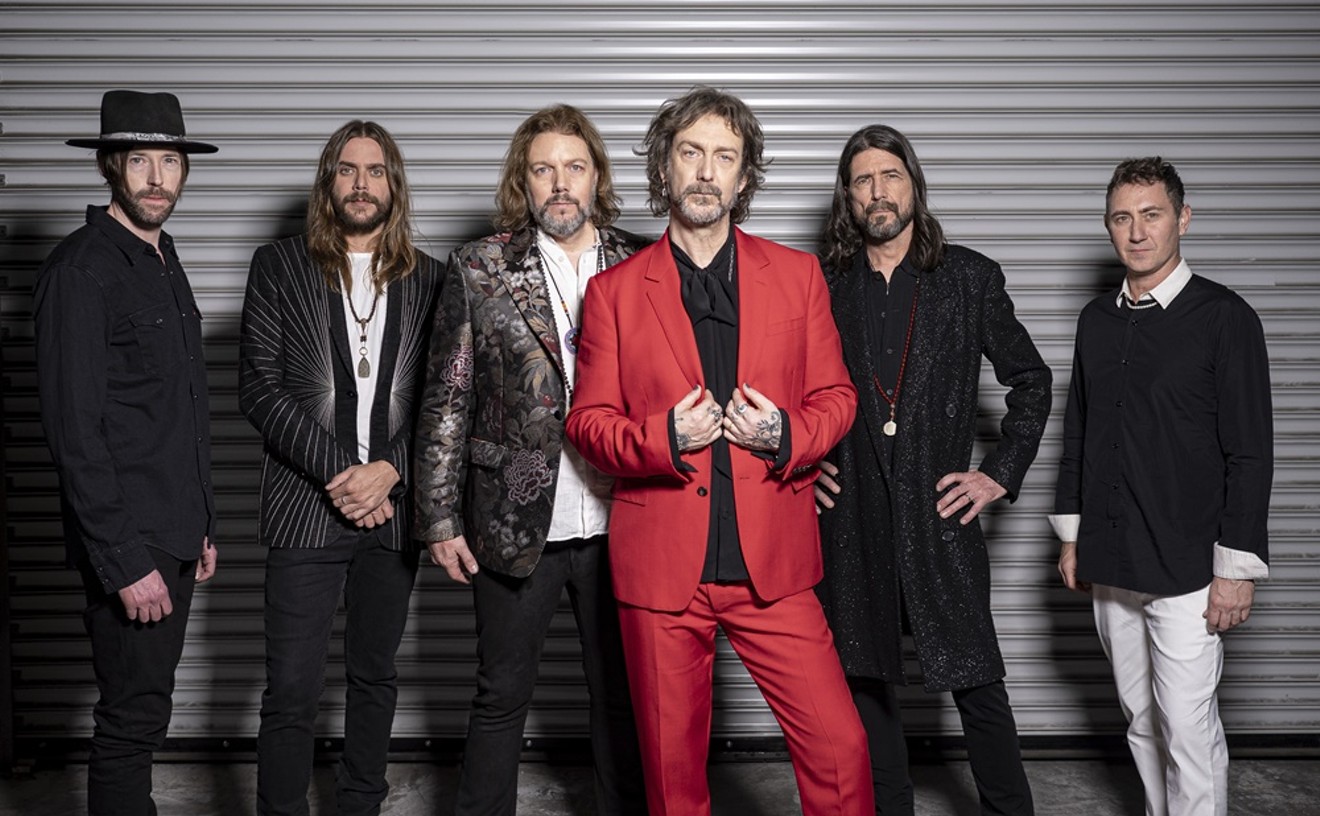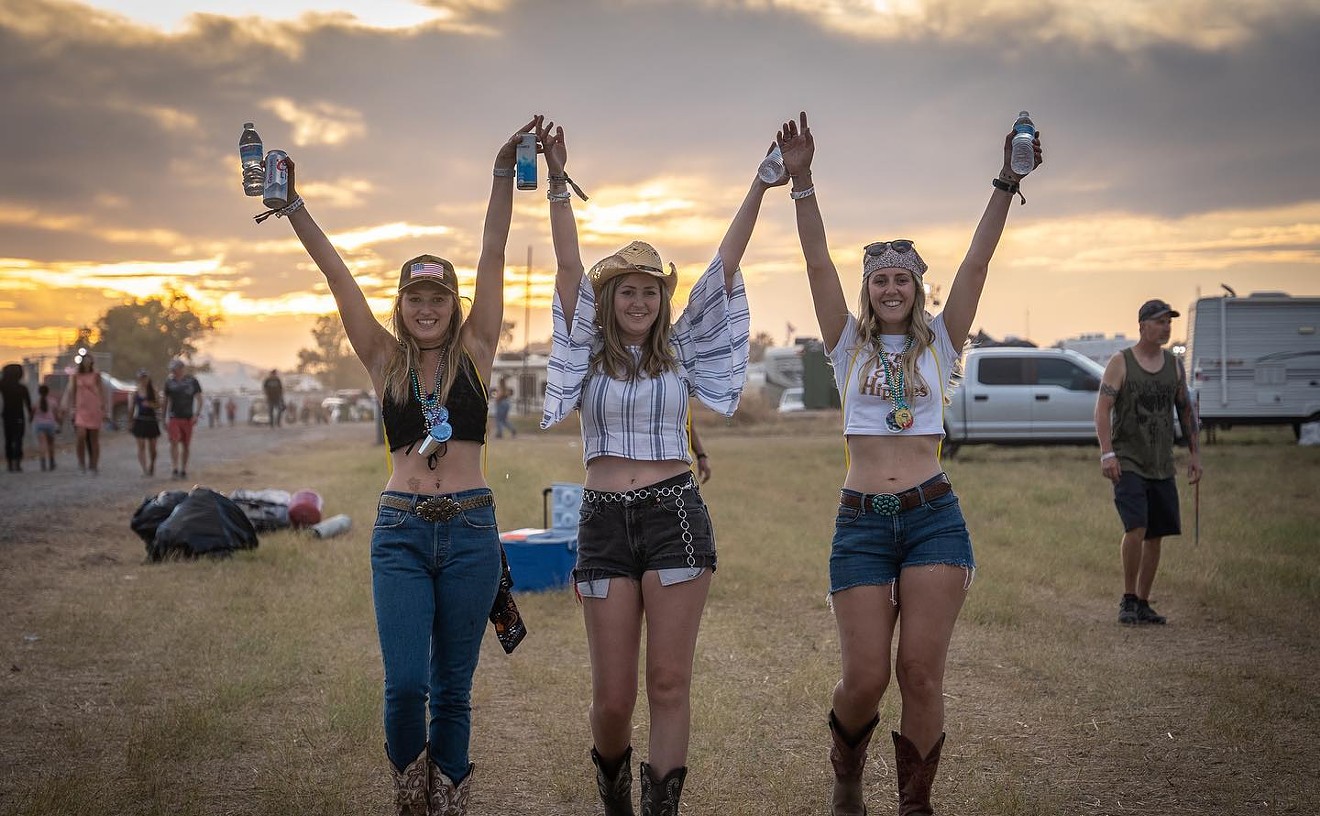Waylon Jennings would have been 75 on June 15. The outlaw country singer passed away in 2002, but his ghost still haunts the country scene in Phoenix. You can't wander too far without some acoustic guitar-wielding singer in boots giving you an earful about his legacy. That's how it should be. The folks at the long-running country and Western night Valley Fever hosts a bash honoring his birthday each year, and this year, they've added some incentive: The party's proceeds will benefit the Translational Genomics Research Institute's (T-Gen) Waylon Fund, on Sunday, June 17, at the Yucca Tap Room in Tempe, honoring the man with performances by Hans Olson (another legend in AZ), Tony Martinez, country rocker James Park, former trucker Ray Lawrence Jr., Junction 10, country punker Chip Hanna, and more.
Jennings wasn't a native, but his Arizona roots are deep. He grew up in Texas, where he met and performed with Buddy Holly (passing up a seat on the plane that crashed, ending Holly's life) and played as a sideman. Somehow, Jennings found his way to Coolidge, Arizona, where he manned the mic at a small radio station, KCKY. He made his way to Phoenix, fronting a rockabilly band called The Waylors and recording Waylon at JD's, sold at the Phoenix nightclub of the same name and recorded at Audio Recorders. The record, and his dynamic Telecaster sound, gained him the attention of record company execs, which found him packing up and heading out to California.
And from that point on, until the time of his death (in Chandler, where he lived with his wife, the strong-voiced and strong-willed Jessi Colter), Jennings' career and music would be the stuff of legend. Along with rebels like Johnny Cash, Merle Haggard, Willie Nelson, Kris Kristofferson, David Allan Coe, and more, he was designated an "outlaw" by the Nashville establishment. He never cared much for the term (though his 1972 album Ladies Love Outlaws was pretty much responsible for its popularity, and he later played with Nelson, Cash, and Kristofferson as The Highwaymen, sort of solidifying the connection), and it makes sense: "outlaw country" wasn't bound by any shared ideology — Coe and Kristofferson sat on opposite sides of the aisle, as it were — so much as it was a shared rejection of Nashville's scrubbing and tidying up of Western music's frayed and tattered glory. A string of albums — Lonesome, On'ry and Mean, Honky Tonk Heroes (with all songs written by then-unknown Billy Joe Shaver), the rock 'n' rollin' Are You Ready for the Country, and more — explored the earliest ideas of "alt-country" and stand as powerful, loud classics.
Local punk DJ Johnny Volume, who will be spinning at the party alongside local queen of country DJ Dana Armstrong, says Jennings' refusal to tone down his sound has earned him a devoted following of punk rockers — who identify with his artistic and spiritual angst. "Waylon was an outlaw. He kept it real, which is something that punks can respect," Volume says. "He truly did not give a fuck and did things his way. He made the audience come around to his way of doing things, like punk."
Volume adds that like the punk rockers who stuck around, Jennings recognized the inherent contradictions of celebrating rebellion simply for the sake of rebellion. "To a certain extent, he saw that it become what it was against," Volume says. "[He addresses it] with the lyrics to 'Don't You Think This Outlaw Bit's Done Got Out of Hand.'"
Armstrong adds that teaming with T-Gen was a natural fit for Valley Fever's Jennings celebration, as the singer died of complications from his battle with diabetes. "It's become a great opportunity to not only bring awareness to their efforts to find a cure, but it has helped to map out a statewide and national network of like-minded and energized country music supporters."
The activism further makes sense considering Jennings' always-boisterous approach. Armstrong explains: "It's given some added momentum to the 'outlaw' country music community and gives the genre, as a whole, a bigger voice. With a bigger voice, we can make a bigger impact."











